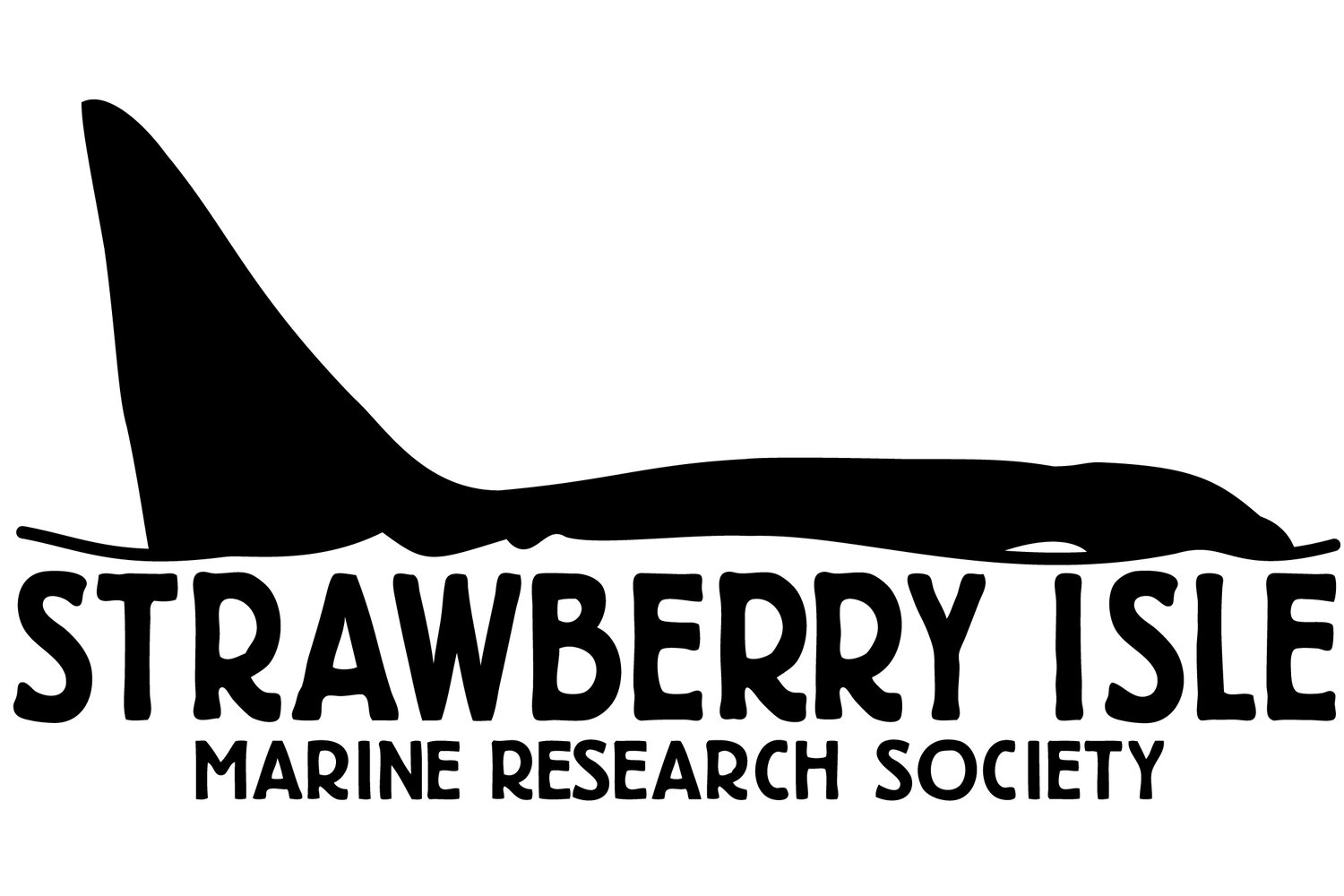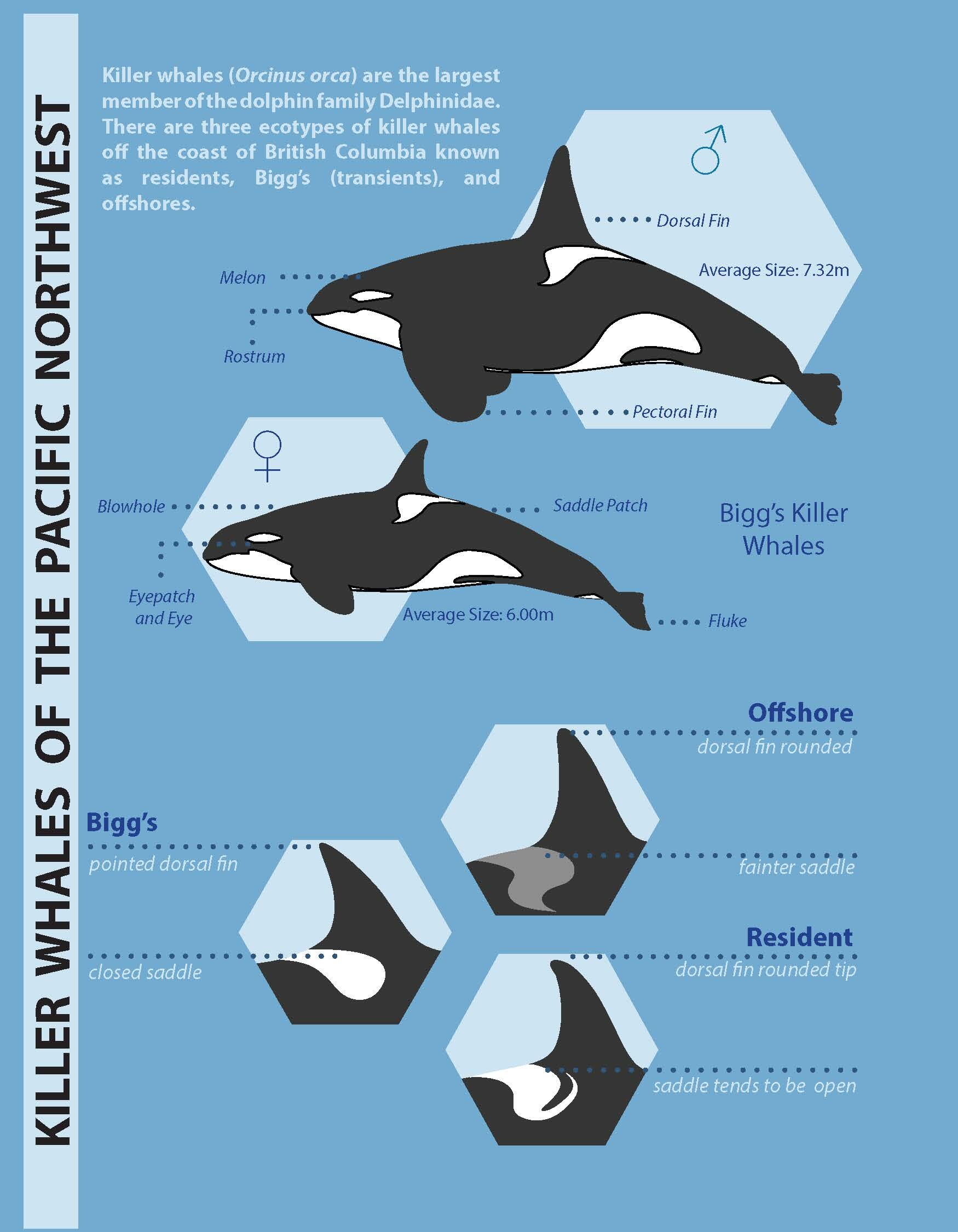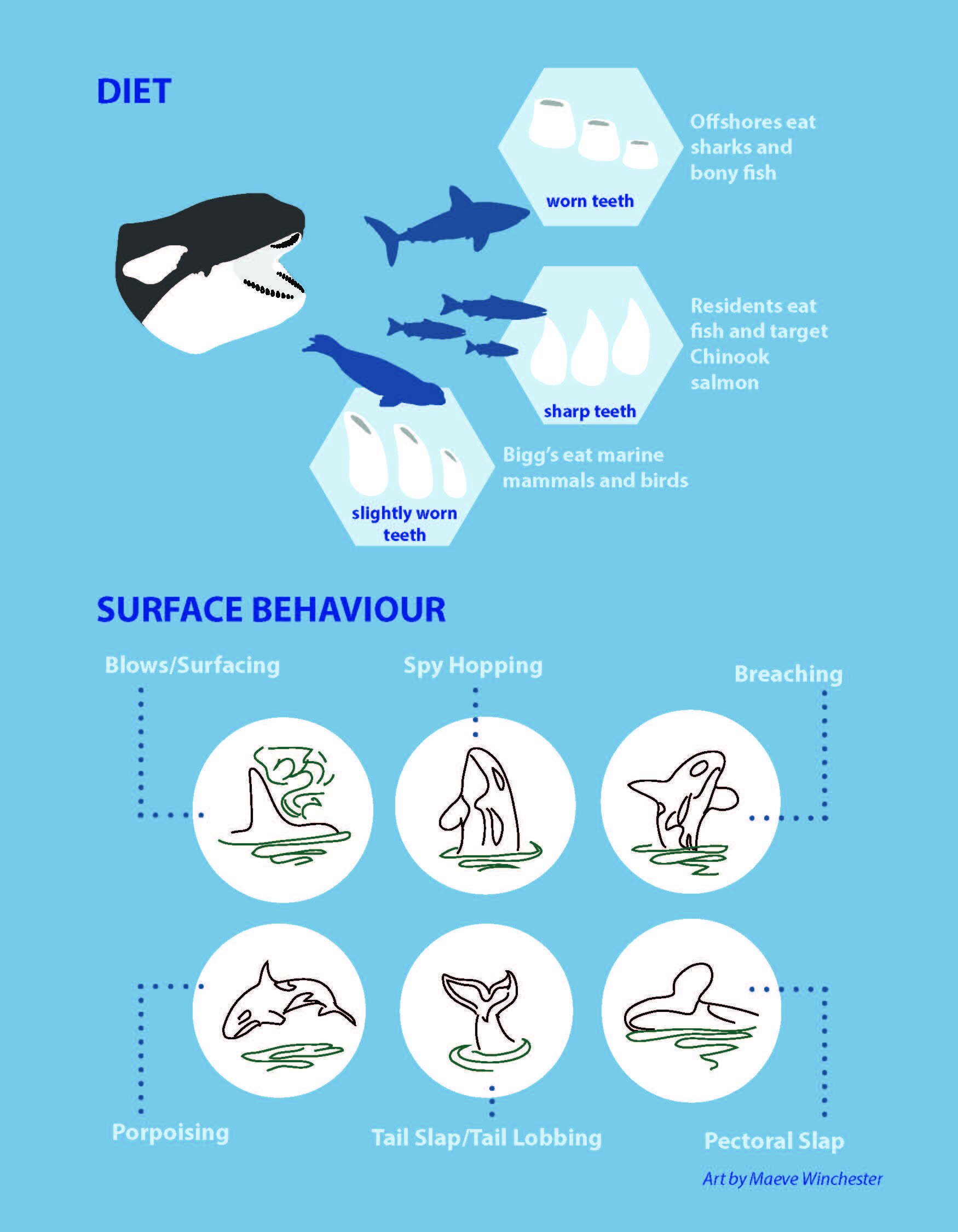BIGG’S KILLER WHALE MONITORING
Killer Whales (Orcinus orca), or Kakawin in the Nuu-chah-nulth language, are an ecologically and culturally important species in British Columbia. Three distinct ecotypes of killer whales exist in the waters of British Columbia: Residents, Bigg’s (formerly known as transients), and Offshores. All three ecotypes have been documented in Clayoquot Sound, however the mammal-eating Bigg’s killer whales are the most frequent visitors. Currently, all three killer whale ecotypes are listed as either threatened or endangered. This is due to biological factors such as small population sizes and low reproductive rates, as well as anthropogenic factors including habitat degradation, pollution, and vessel-related disturbances.
CONTRIBUTIONS TO RESEARCH
This program relies heavily on the voluntary participation of local eco-tourism operators and other water-based businesses. Daily wildlife sightings and observations from water taxis, tour boats, fish farms, airlines, tug boats and waterfront residents are recorded in a species specific database. This comprehensive and systematic approach to monitoring has led to in-depth and immeasurable fine-scale information. Reporting is done on the scene via VHF radio and/or by cellphone and the sightings are recorded on a field sheet and finally, entered into the appropriate data set. This monitoring is active, year-round on a daily basis. By utilizing the efforts of folks already on the water, we are able to collect valuable data without adding to the impacts of vessels on marine mammals. Additionally, a portion of the proceeds from many whale watching tours supports local Wildlife Research and Rescue programs such as ours. If you are interested in responsible whale watching that supports our research, check out the tours available from our patrons.
Bigg’s Killer Whales of Clayoquot Sound: A field guide
Would you like to try your hand at photo identification? Curious to see which individuals visit our waters? Get the latest edition of our Bigg’s Killer Whale identification catalogue for an in depth look at frequent gangs, photo identification tips, species information, ecological trends, and more!
We will send a PDF version to supporters who donate $30 or more to our research, monitoring, and education initiatives. Donate here and be sure to provide your email for the tax receipt and PDF book!
(Limited printed versions may still be available for purchase at Jamie’s Whaling Station, The Whale Centre, Ocean Outfitters, Ucluelet Aquarium, and Mermaid Tales Bookshop.)




